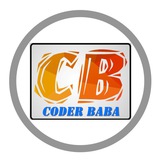ANNOTATED COVER LETTER TEMPLATE as of 92914.pdf
330.9 KB
BASIC COVER LETTER FORMAT WITH EXPLANATORY ANNOTATIONS
Capgemini_previous _papers_q_bank1.docx
41.1 KB
Capgemini Aptitude Test Placement Papers
for more study material subscribe my channel 👉coderbaba
for more study material subscribe my channel 👉coderbaba
🖥 Roadmap for JAVA Backend developer 🖥
🎯1. Core Java
Core Java is Java's building blocks and learning the core concepts are crucial to construct complex software applications.
a. Java basics
b. Oops Concept
c. Collections
d. Thread in Java
and more basic concepts.
🎯2. Databases
Learning databases is essential, application saves computational data in DB, Learn databases and language to interact with databases.
a. SQL Server/MySQL
b. SQL Language
b. ORM/Hibernate/Mybatis
🎯3. Advance Java
In addition to simple Java programming, Java is also used to construct dynamic websites. One should master advanced Java topics after learning core Java.
a. Servlets
b. JSP
🎯4. Web servers
To deploy Java servlet applications and operate web apps, one needs to understand web servers.
a. Tomcat/Jetty (application server to run Java web app)
b. Apache HTTP Server (web server to host HTTP pages)
🎯5. Frameworks
The next step is learning frameworks so you can create enterprise Java apps.
Understanding advanced Java features is a requirement before using frameworks because they are built on top of them.
a. Spring/Struts
🎯6. Web services
Java applications mostly use API (Application Programming Interface) to solve complex problems. These APIs are hosted with the help of web services(REST/SOAP), Learning web services will help you build complex software server.
follow @coder_baba
🎯1. Core Java
Core Java is Java's building blocks and learning the core concepts are crucial to construct complex software applications.
a. Java basics
b. Oops Concept
c. Collections
d. Thread in Java
and more basic concepts.
🎯2. Databases
Learning databases is essential, application saves computational data in DB, Learn databases and language to interact with databases.
a. SQL Server/MySQL
b. SQL Language
b. ORM/Hibernate/Mybatis
🎯3. Advance Java
In addition to simple Java programming, Java is also used to construct dynamic websites. One should master advanced Java topics after learning core Java.
a. Servlets
b. JSP
🎯4. Web servers
To deploy Java servlet applications and operate web apps, one needs to understand web servers.
a. Tomcat/Jetty (application server to run Java web app)
b. Apache HTTP Server (web server to host HTTP pages)
🎯5. Frameworks
The next step is learning frameworks so you can create enterprise Java apps.
Understanding advanced Java features is a requirement before using frameworks because they are built on top of them.
a. Spring/Struts
🎯6. Web services
Java applications mostly use API (Application Programming Interface) to solve complex problems. These APIs are hosted with the help of web services(REST/SOAP), Learning web services will help you build complex software server.
follow @coder_baba
